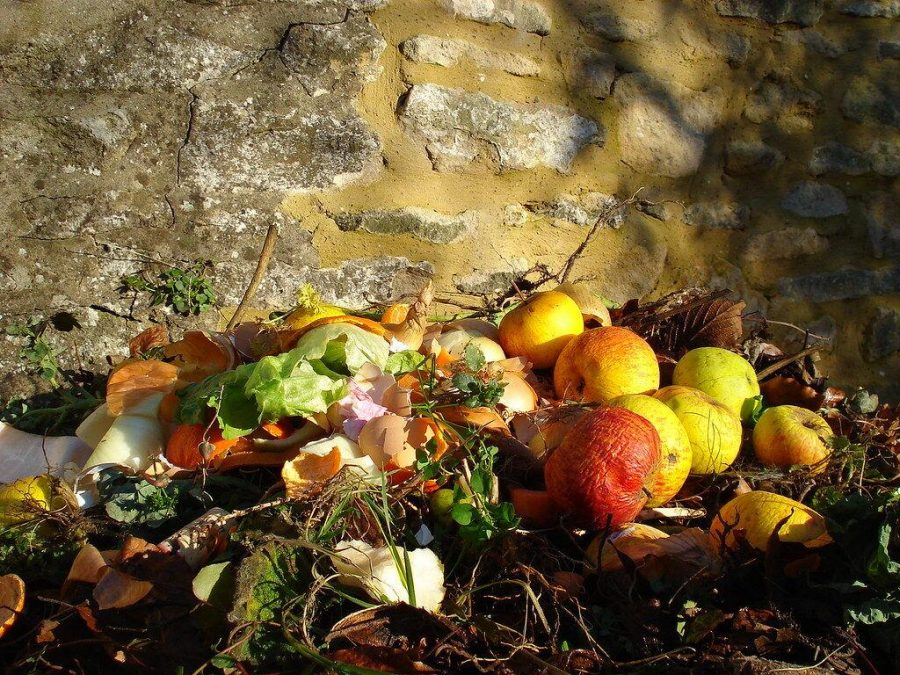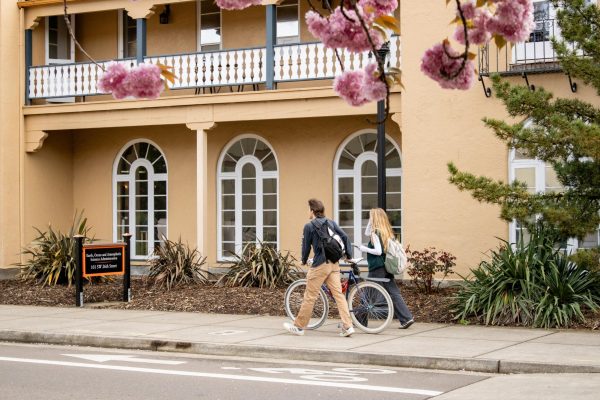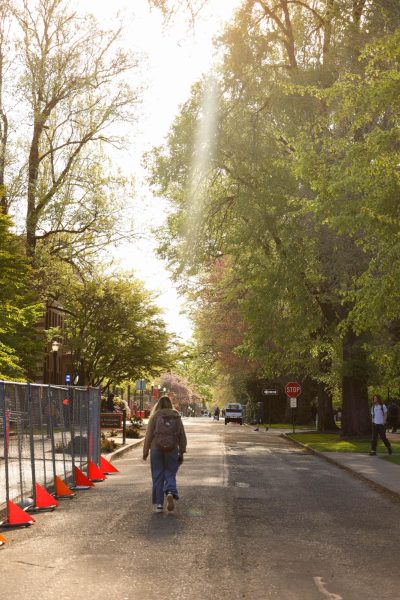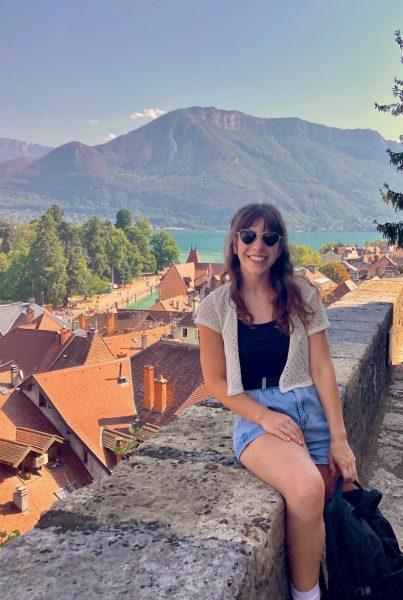Baskin: Community composting is important
November 10, 2020
What’s the point of composting? Everything comes from the ground, and eventually returns. Why should wayward apple cores or banana peels go to the right containers? Can composting enrich the community?
When I think about composting on a local scale, a community garden is what comes to mind. The Calvin Community Garden, one such operation here in Corvallis, was created in 2006 by members of the Calvin Presbyterian Church.
With the decentralization of much of modern residential living from both agricultural production and waste management, something like a community garden can provide much more than just growing and composting resources.
“People often come just to enjoy the garden setting,” Doug Eldon, the administrator of the Calvin Community Garden said. Additionally, “[some gardeners] grow vegetables to give to friends and neighbors or the Soup Kitchen.”
According to Eldon, the Calvin Community Garden bought back specially treated and pasteurized compost from Republic Sanitation Services in Corvallis who picks up their yard waste every week to be composted. Eldon added that often “the other community gardens that try to compost [on-site] end up breeding rats.”
Although space in the Calvin Garden is at a premium, there are other ways that someone without a plot in a community garden could get into composting. And composting can be important on a municipal scale.
Annette Mills and Jeanette Hardison work with the Corvallis Sustainability Coalition, a local nonprofit organization working towards the goal of a more sustainable Corvallis. Mills and Hardison explained the ecological significance of composting, as well as ways to get involved.
Hardison also founded No Food Left Behind-Corvallis, a program that helps Corvallis residents learn about composting and provides interested individuals with kitchen compost receptacles to make home composting easier and combat the “yuck factor” that can turn some people away from composting food waste.
When asked about the significance of composting, Hardison stated that “composting is just one point on the waste stream,” and that, while it’s important, “compost is really just diversion from one waste stream to another waste stream.”
Hardison also explained that there are multiple different waste streams in any community, and that different rules and regulations apply to the three groups of commercial, industrial, and household waste.
In terms of food waste, “it was residents that were actually generating the most preventable wasted food,” Hardison said. In other words, this area of waste reduction and management is the most important one for many people to focus on.
Although community composting is important on a local level, it is also an action that has an effect on a global scale. When compostable items, such as food or yard waste are sent to a landfill, rather than allowed to naturally compost, a very different chemical reaction takes place.
Since there isn’t a lot of oxygen at the bottom of a landfill, which is required for the standard decomposition process, mixed organics don’t break down as they would in a compost pile, or in nature, and instead generate methane gas, a greenhouse gas that traps heat in the atmosphere about 200 times more effectively than carbon dioxide. Since landfills are a major source of methane, this means that proper composting is vital to preserve our rapidly warming biosphere.
When waste is mixed improperly, waste disposal service providers can demand a fine, which ends up being paid by the property owner. This can make it difficult for many apartment residents who are interested in composting to get their landlords on board with the idea.
“It’s oftentimes challenging to live in an apartment where there’s a landlord or a manager or an owner who does not want to pay extra for a mixed organics cart,” Mills said.
It’s my hope that more students, faculty, and community members alike become aware of the various methods of composting that are accessible here in Corvallis, as well as the importance of reducing food and organic waste when possible. It might seem like a drop in the proverbial bucket, but if everyone made a conscious effort to compost, it could do a lot to cut back on organic waste as well as methane emissions. Broad changes can always start at the individual and community levels, and the case of composting is no exception.






















































































































